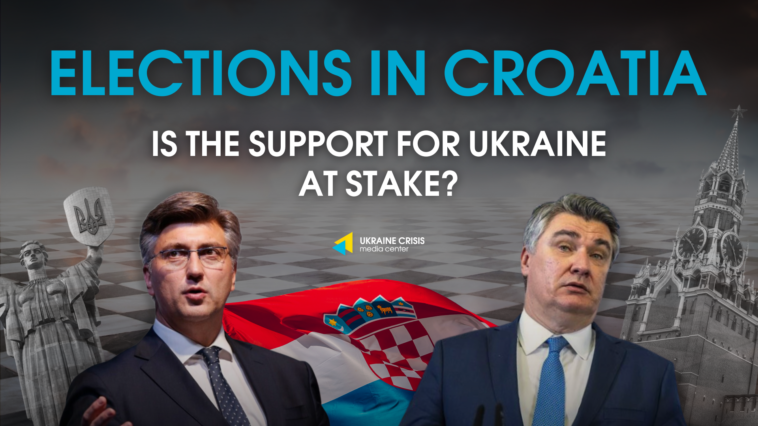On March 14, 2024, the Croatian Parliament was dissolved at the demand of opposition forces and so early parliamentary elections are expected to take place.
Prime Minister Andrej Plenković initially planned to hold elections at the end of summer/beginning of autumn, despite current electoral legislation requiring them to be held within two months. However, under pressure from opposition parties and citizen protests against government corruption, demanding higher wages and social benefits, the Prime Minister and government decided to schedule early elections ahead of the European Parliament elections (June 9, 2024). Thus, the new Sabor (Croatia’s legislative body) will be elected on April 17.
According to sociological surveys, the majority of voters are in favour of the main government party, represented by the current Prime Minister, the Croatian Democratic Union (HDZ). Based on IPSOS data, as of March 25, this political force has 29.8% support, up 1% from February. Recent polls show that the HDZ is quite popular among voters, but it faces challenges in rapidly increasing its supporters ahead of election day, with the Social Democratic Party of Croatia (SDP) being the main competitor to the pro-government political force.
Croatian experts note that the opposition to the current government, SDP, is gaining popularity due to President Zoran Milanović’s decision to run for elections, competing for the post of Prime Minister at the head of the Social Democrats’ list. Crobarometer indicates a rapid increase in SDP’s popularity – 19.4%, 6% more than in February.
We should note that the SDP signed a coalition agreement on March 22 to form a future government with five liberal parties with the coalition named as “Rivers of Truth.” According to HRating data, this coalition of political forces and SDP could possibly gain support from 25.2% of voters. SDP also mentioned a possible situational coalition with the party Možemo!, led by the mayor of Zagreb, Tomislav Tomašević as the polls currently show the party ranking third with 9% of voter sympathy. Altogether, 76 votes are needed to form a majority in the Croatian Parliament (Sabor). Zoran Milanović, who stated this in a recent interview on the N1 Hrvatska channel, expects to receive exactly this amount.
Regarding the possible consequences for Ukraine due to the potential change of power in Croatia, the Hybrid Warfare Analytical Group of the Ukrainian Crisis Media Center spoke with Kateryna Shymkevych, head of the Balkan Research Analytical Center.
According to the Shimkevich, if the Social Democratic Party wins and the current pro-Russian President Zoran Milanović lands the position as Prime Minister, this could put up for question the future implementation of already closed agreement between Ukraine and Croatia on demining cooperation, signed in October 2023.
“If Milanović wins, it cannot be excluded that wounded Ukrainian soldiers, currently undergoing treatment in Croatia, wouldn’t be turned away from future rehabilitation [in Croatia]. Perhaps Zagreb would stop sharing Croatia’s industry knowledge with Ukrainian military engineers and psychologists, despite their expertise in these areas,” warns Kateryna Shymkevych.
The actions of the pro-Russian government of Croatia in the next four years could jeopardize Ukraine’s Euro-Atlantic integration, considering Croatia has yet to sign a declaration in support of Ukraine’s NATO membership. “Although Croatia supports Ukraine’s European integration, it does not necessarily support its NATO membership,” explains Shimkevich. As the expert notes, Croatia, Germany, Austria, and the Netherlands share the consensus that Ukraine’s integration into the EU should be linked to Bosnia and Herzegovina. Therefore, Milanović’s role could be an unfavourable event in terms of Ukraine’s Euro-integration.



